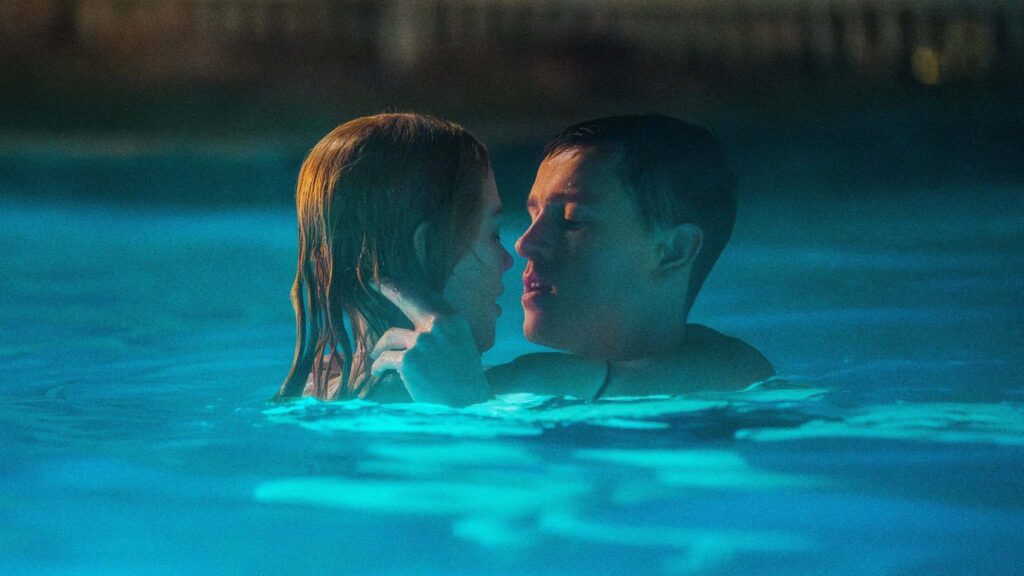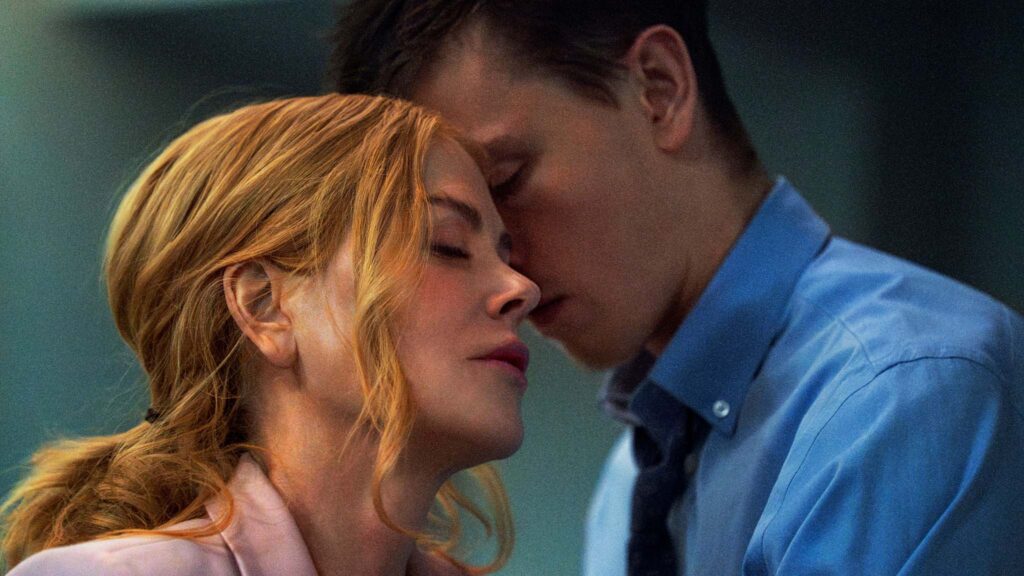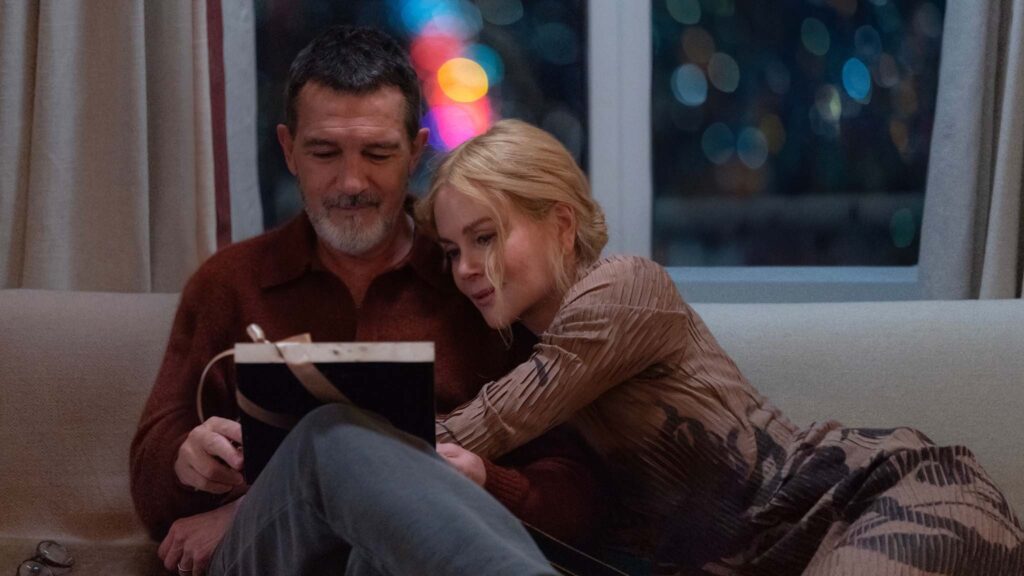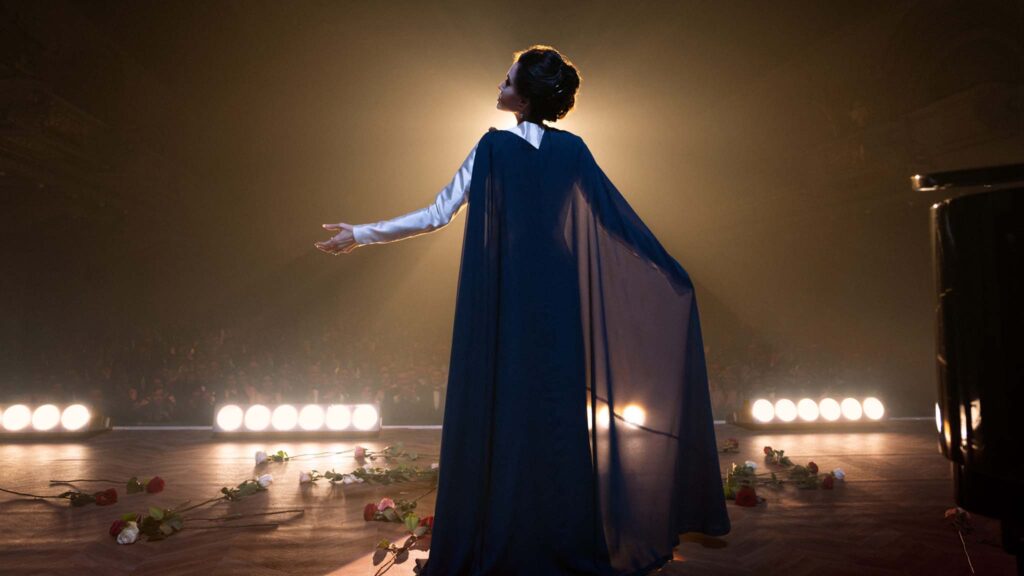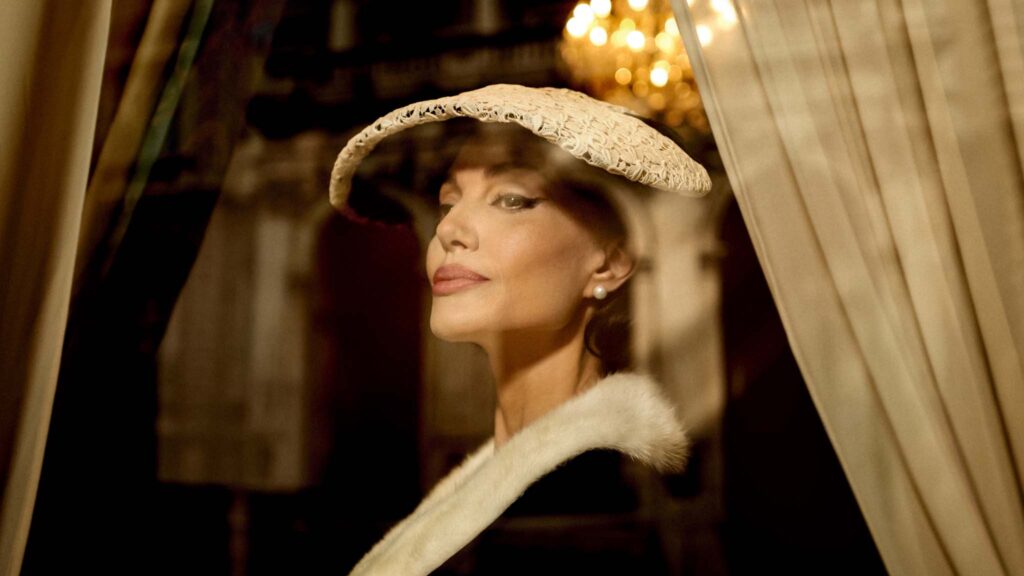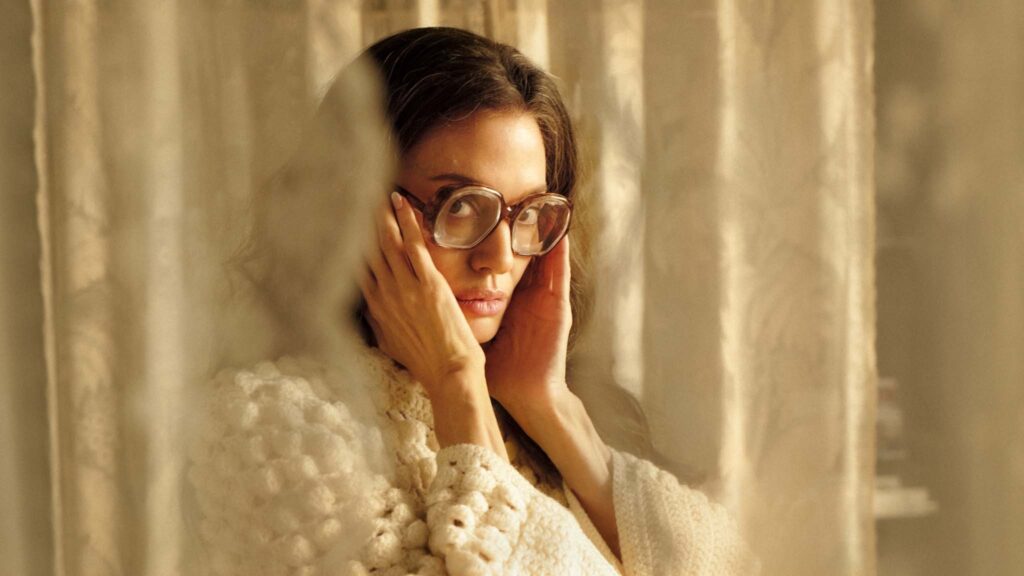Thriller
Babygirl (18)
Review: Writer-director Halina Reijn’s unflinching study of female sexuality is bookended by orgasms, captured in exquisite, unabashed close-up on the face of Nicole Kidman. The first is loudly faked for a partner, who subsequently punctuates his sweat-glistened pleasure with three whispered words (“I love you”), and the second is intense, raw and genuine, reflecting a rare intimacy and vulnerability that requires no verbal outburst.
Nothing is faked by Kidman in Babygirl. She delivers a fearless, gut-wrenching portrayal of a businesswoman, wife and mother ashamed of the animalistic desires in her head until an abuse of power with a male subordinate allows BDSM-charged fantasy to become intoxicating and potentially career-ending reality. Reijn’s provocative picture explores the different masks we wear in front of others – partners, family, friends, work colleagues – and the self-hatred that festers behind these masks when we refuse to acknowledge our primal impulses.
Cinematographer Jasper Wolf shoots predominantly on handheld cameras to capture the electricity of Kidman’s scenes with co-star Harris Dickinson. Some of their most pulse-quickening moments are single, unbroken takes. Dramatic tension relentlessly cranks up as consensual partners flaunt safeguards and the possibility of their discovery becomes a shattering inevitability.
Romy Mathis (Kidman) is CEO of New York-based logistics company Tensile Automation, which has just launched a new robot named Harvest to speed up the selection of warehouse products. She is one of the few female faces in the boardroom and an inspiration to her assistant Esme (Sophie Wilde). The sheen of power and self-confidence that radiates from Romy in the office dulls at home where her two daughters, Isabel (Esther McGregor) and Nora (Vaughan Reilly), plant seeds of doubt about her parenting skills and she struggles to maintain a vibrant sex life with her theatre director husband Jacob (Antonio Banderas). Art subtly imitates life because Jacob is poised to open his multimedia Broadway staging of Hedda Gabler, Henrik Ibsen’s 19th-century drama about a stagnant marriage.
Cocksure 20-something intern Samuel (Dickinson) brazenly propositions Romy during a private mentoring session and she subsequently kisses him. The pair meet in a cheap hotel and Romy nervously vocalises her unfulfilled desire to be a submissive in the bedroom. “I tell you what to do and you do it,” asserts Samuel and she complies. Risk is part of the thrill until Romy’s carefully ordered, picture-perfect world implodes and she faces the devastating consequences of her actions.
Babygirl is a kinky power play that brings Kidman full circle from 1999’s Eyes Wide Shut, in which her doctor’s wife confesses to forbidden passions while smoking marijuana with Tom Cruise’s ego-bruised husband. Banderas simmers until a cacophonous third act, which affords him a scene-stealing explosion of rage and despair. Reijn’s script provides no miracle ointment to salve these freshly inflicted wounds. Pain is handcuffed to the pleasure.
Find Babygirl in the cinemas
Drama
Maria (12A)
Review: There are few guarantees in the film industry where perceived success of hundreds of hours of creative toil ultimately rests on two unpredictable rabbles: critics and the ticket-buying public. One certainty, however, would be an array of glittering awards for a fearless actress who collaborates with writer-director Pablo Larrain. In his previous biographical dramas, Jackie starring Natalie Portman and Spencer headlining Kristen Stewart, the Chilean filmmaker guided his leading ladies to Oscar nominations and myriad plaudits.
He should three-peat with Angelina Jolie in Maria, a magnificently staged but dramatically uneven distillation of soprano Maria Callas’s final days in 1977 Paris, where she died from a heart attack in her apartment on Avenue Georges Mandel. Jolie invested almost seven months in learning to sing in Italian and play the piano, to convincingly portray one of the defining voices of 20th-century opera. She delivers a mesmerising, tour-de-force portrayal of desperately insecure divadom, at once imperious and heartbreakingly fragile. Staged performances elegantly combine Jolie’s live singing in front of hundreds of extras and Callas’ recorded vocals.
Steven Knight’s screenplay distils Callas’s life into three acts and an epilogue, peppered with melodic dialogue that exposes the soprano’s unquenchable desire to be revered (“Book me a table at the restaurant where the waiters know who I am. I am in the mood for adulation”) and the harsh reality of not being able to bear children (“My body declined to make another self… because my body knew, I was a tiger.”)
Larrain’s picture opens on September 16 1977 in Callas’s Parisian apartment where policemen and a doctor silently gather around the soprano’s lifeless body. Ave Maria from Verdi’s Otello reverberates as time rewinds one week via a montage of Callas’s finest moments, rendered in lustrous black and white or colour. Fiercely devoted butler Ferruccio (Pierfrancesco Favino) and housemaid Bruna (Alba Rohrwacher) tend to their mistress’s needs.
They are deeply concerned about her health with the impending arrival of Dr Fontainebleau (Vincent Macaigne) but Maria (Jolie) brushes aside their concerns and spends the morning instead at the Theatre Des Champs-Elysees with pianist Jeffrey Tate (Stephen Ashfield). They work together to assess her vocal decline as the diva wallows in memories of her turbulent love affair with shipping magnate Aristotle Onassis (Haluk Bilginer) and shared history with her sister Yakinthi (Valeria Golino).
Maria is distinguished by Jolie’s bravura embodiment of the enigmatic songbird, who was caged by her lover but refused to fly away. The actress soars as Larrain’s picture strains to consistently hit the same high notes despite sterling support from Favino and Rohrwacher. Fractured chronology hampers dramatic momentum and doesn’t flatter the two-hour running time but a standing ovation is richly deserved for Jolie’s comeback after a three-year hiatus in front of the camera.
Find Maria in the cinemas


